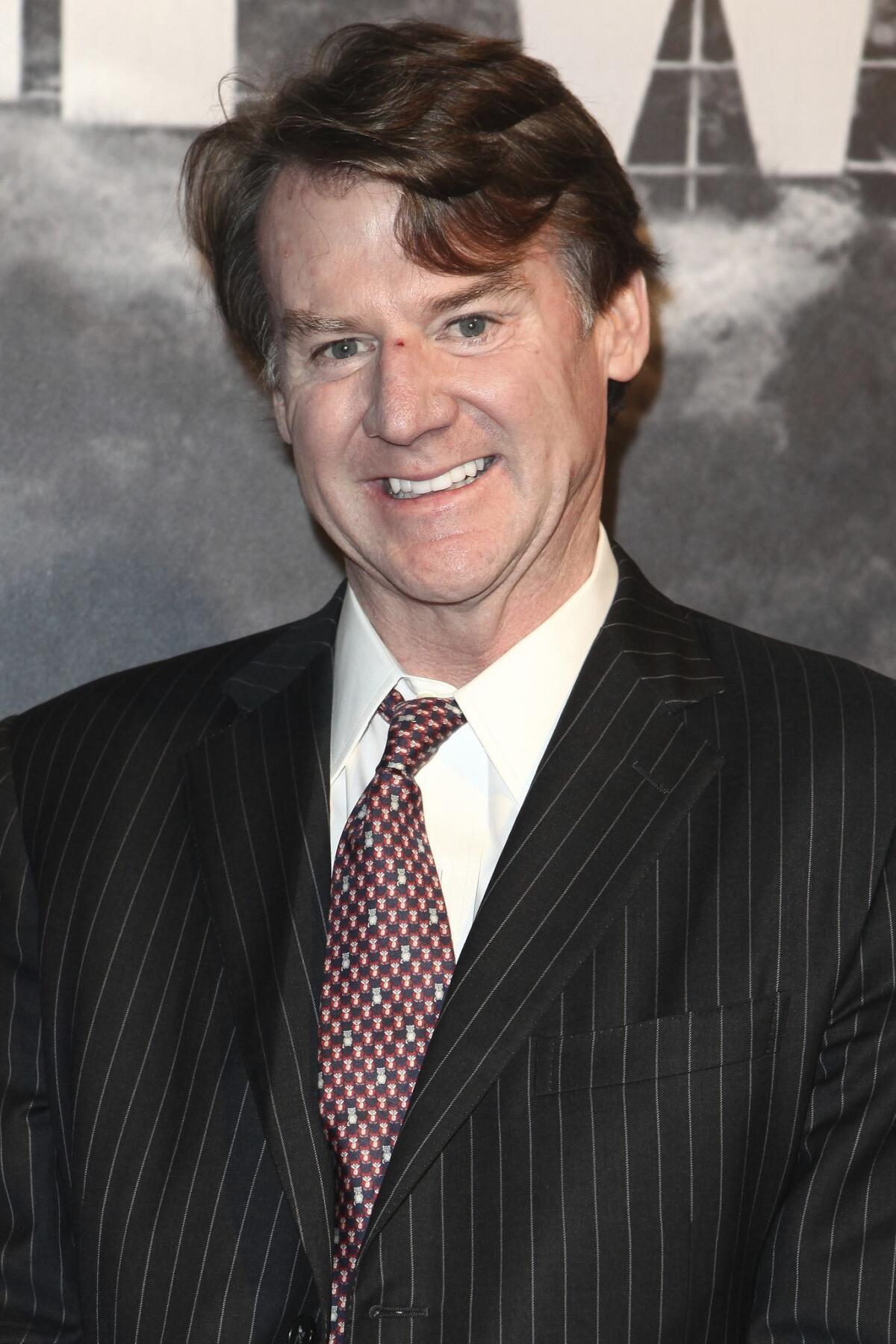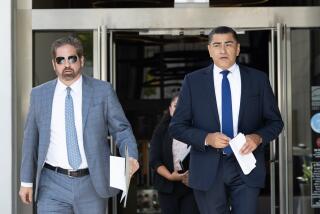Judge tosses former bank execâs claims against police union

A judge has tossed out a former Hollywood deal maker and banking executiveâs claims that the Los Angeles police union conspired to retaliate against him for suing LAPD officers.
In an order issued this week, U.S. District Judge R. Gary Klausner found Brian Mulligan fell far short of making a legitimate legal case in his lawsuit against the L.A. Police Protective League. Mulligan failed, Klausner ruled, largely because he could not show League officials had done anything that violated his rights or that was outside the bounds of typical legal jockeying.
Mulliganâs allegations against the union were part of a broader story of abuse and conspiracy the one-time Deutsche Bank vice president leveled against the LAPD and the union in a lawsuit following his arrest by LAPD officers in May 2012.
Officers, responding to reports of a man trying to get into locked cars, came upon Mulligan in the street and stopped him. In his car, an officer found what appeared to be bath salts, a synthetic substance that is not illegal to possess, but can cause powerful reactions similar to cocaine when ingested, according to a recounting of events by the Police Commission, which oversees the LAPD.
Although they noticed he was âsweating profusely and appeared unsteady,â the officers determined Mulligan was not drunk or under the influence of illegal drugs. Mulligan asked the officers to bring him to a motel, according to accounts given by the officers and a police supervisor who was at the scene. They agreed, dropping him off at one nearby.
About an hour later, the same officers saw Mulligan âscreaming and dragging a metal trash can in the street,â police reports show. Mulligan ran away from the officers, according to the LAPDâs official account of the incident. The officers gave chase and said they found Mulligan snarling, thrashing and swiping at them as if he believed his hands were claws. They claimed Mulligan charged at them. The officers said they pushed him to the ground and kicked and struck him in the torso with a baton, according to police records.
Mulliganâs nose was broken in several places and his shoulder blade fractured. After an internal investigation, the Police Commission found the officersâ use of force was justified.
Mulligan had a very different account of the encounter. Through an attorney, he claimed the officers took him to the motel against his will and then attacked him when he fled, beating him in the face and on the head and deliberately breaking his shoulder blade. He accused the officers of fabricating their arrest report.
After Mulligan announced plans to seek millions in damages from the officers and LAPD, the union released a recording that an officer in nearby Glendale made when Mulligan had struck up a conversation with him a few days before his arrest. Sounding agitated and paranoid, Mulligan admitted to the officer to using a potent type of bath salts.
The recording, the union said in a press release, discredited Mulligan and showed he was trying to âshake downâ the police department.
With that, Mulligan expanded his lawsuit, claiming city and union officials had conspired to obtain and release the recording as part of a plan to scare him from pursuing his lawsuit.
Klausner put an end to that line of argument, saying Mulligan had not shown any indication that the unionâs actions were anything other than a private organizationâs effort to defend the officersâ reputations and the publicâs faith in the LAPD.
Eric Rose, a media consultant for the union who Mulligan sued in a separate lawsuit, said he would seek to have his case thrown out on the same grounds.
Mulliganâs attorney, Skip Miller, declined to comment on the judgeâs ruling.
ALSO:
âParnoidâ bank exec told officer he used bath salts, police say
When LAPD officers were accused, union dug up dirt to fight back
Warhol portrait of Farrah Fawcett belongs to Ryan OâNeal, jury says
Twitter: @joelrubin
More to Read
Sign up for Essential California
The most important California stories and recommendations in your inbox every morning.
You may occasionally receive promotional content from the Los Angeles Times.











